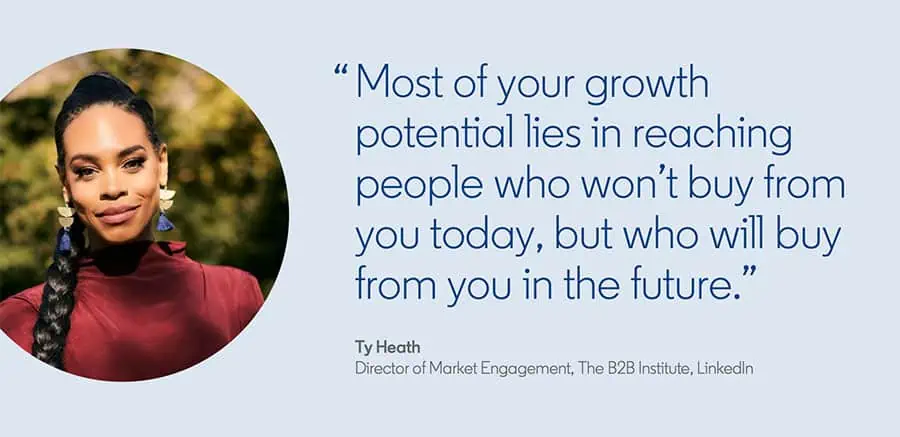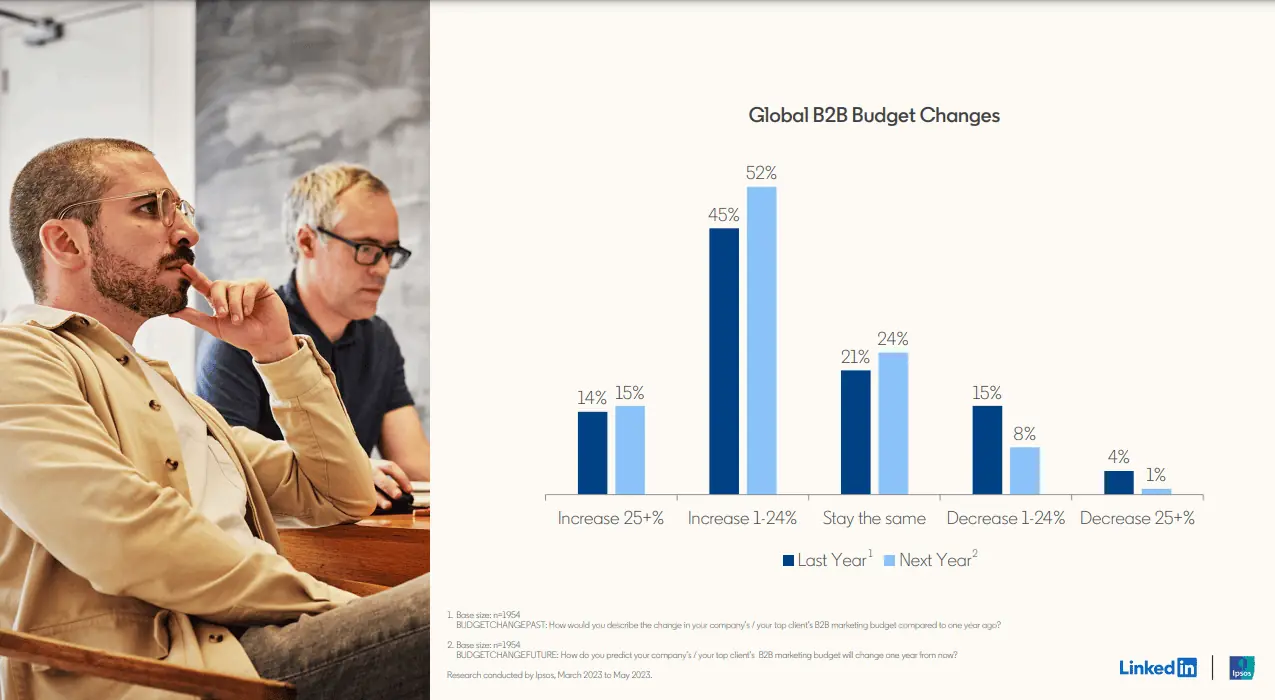
So it’s no surprise that when this business-focused social media platform publishes research near and dear to my heart, I’m all ears.
Since it came out in early June 2023, I’ve been poring through LinkedIn’s B2B Marketing Benchmark Report to gather the best insights to share from our B2B healthcare marketing agency perspective.
B2B marketing benchmark report highlights
TLDR? Here’s a quick summary of what caught my attention in this global survey of B2B marketing leaders.
B2B brand building is finally getting its due
- 6 in 10 say their C-suite has elevated the importance of brand building
- 30% of global marketing dollars will be spent on brand building and awareness (second only to lead generation)
Speaking of marketing spend, here’s the skinny on budgets
- 6 in 10 say budgets have increased this year*
- 2 in 3 indicate budgets will increase next year
* Caveat: the tech sector is an outlier, with 26% of respondents reporting a decreased budget this year
Marketers, it’s time to skill up
- 52% say martech and data mastery are the most essential skills for their team in the coming two years
- But don’t forget those creative skills! 43% identify storytelling and creativity that connects with your desired audience as the most important
Diversity, equity, and inclusion (DEI) initiatives are a business imperative
- 56% say DEI initiatives help attain top talent, with an additional 51% indicating it contributes to talent retention
- 1 in 2 B2B companies report creating accessible content and inclusive campaigns (if you’re not already doing this, your competitors are!)
And what marketing survey would be complete without a mention of AI (surprise: excitement abounds)
- 75% want to use or will continue to use generative AI
- Less than 2 in 10 have an extremely good idea of how to use AI
Stay ahead of the competition by implementing account-based marketing
One final takeaway that caught me off guard is that account-based marketing (ABM) isn’t as popular as I was expecting. It seems like such a big topic amongst my peers, yet the survey found only 11% of North American marketing budgets are allocated to ABM. I expected so much more, but maybe that speaks more to the martech and storytelling skills in demand than it does to the interest in such highly targeted personalized outreach programming.
For broader guidance on B2B marketing budgets, check out our white paper and peruse branding examples in our portfolio.



